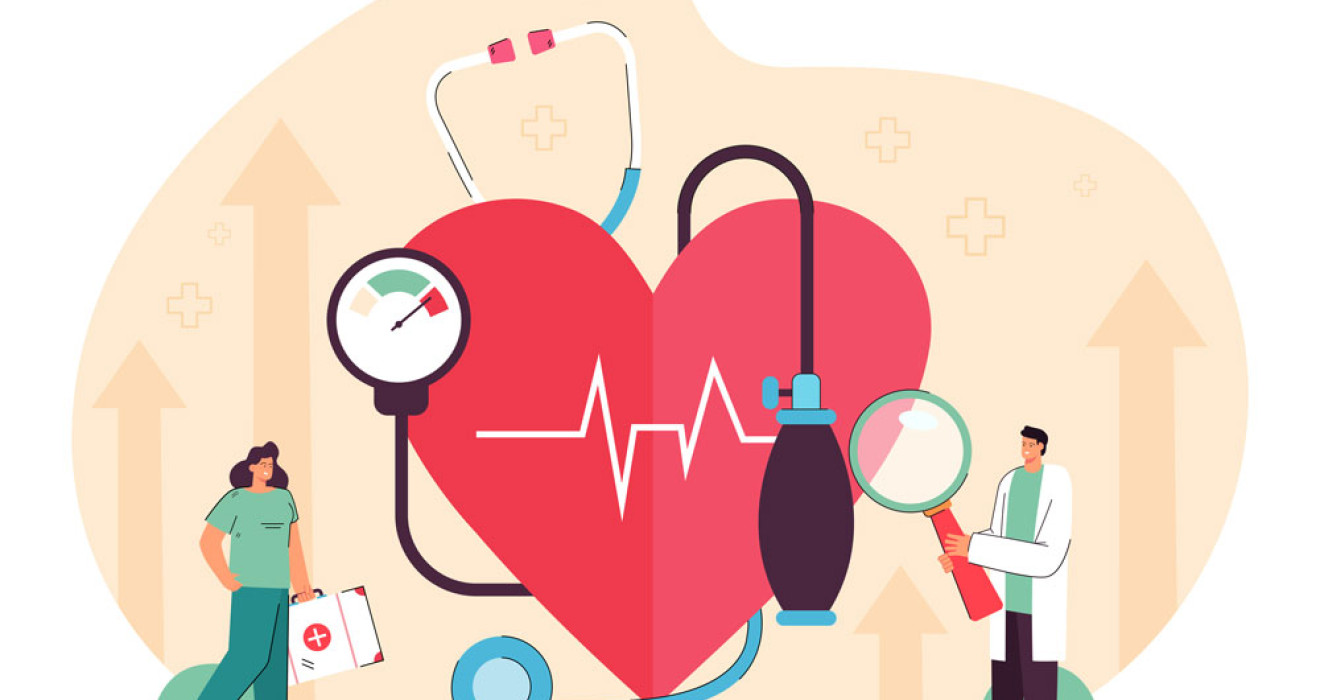
7 Crucial Points to Know About Hypertension
Hypertension, a widespread health issue, affects numerous individuals. It signifies high blood pressure, exerting adverse effects on the heart and blood vessels. Hence, possessing knowledge about high blood pressure is of utmost importance.
What is Hypertension?
Hypertension, commonly known as high blood pressure, refers to an elevated pressure of the blood within the arteries. Normal blood pressure is generally recognized as 120/80 mmHg.
Systolic pressure corresponds to the pressure within the arteries when the heart contracts. Diastolic pressure, on the other hand, denotes the pressure within the arteries when the heart is at rest.
Types of Hypertension
Hypertension types include:
- Essential (Primary) Hypertension: This is the most common type, accounting for approximately 90-95% of cases. Essential hypertension refers to high blood pressure without a specific identifiable cause.
- Secondary Hypertension: This form of hypertension arises as a result of an underlying health condition or disease. Conditions like kidney disease, hormonal disorders (such as thyroid issues or Cushing's syndrome), tumors in the adrenal glands, and narrowing of the renal arteries (renal artery stenosis) can lead to secondary hypertension.
- Gestational Hypertension: Some women experience high blood pressure during pregnancy, known as gestational hypertension. This condition typically resolves after pregnancy but requires vigilant monitoring.
Causes of Arterial Hypertension
Arterial hypertension is often rooted in other underlying health issues. These include high salt intake, obesity, low levels of physical activity, stress, genetic predisposition, and lifestyle habits. In some cases, kidney problems, hormonal imbalances, or medication side effects can also trigger hypertension.
Symptoms and Risk Factors of Hypertension
Hypertension typically doesn't present prominent symptoms initially, earning it the moniker "silent killer." However, if high blood pressure persists over time, symptoms such as headaches, dizziness, nosebleeds, shortness of breath, and chest pain may emerge.
Some risk factors associated with hypertension include age, family history, obesity, excessive salt intake, low physical activity levels, and stress.
Potential Complications of Hypertension
Hypertension can lead to serious complications like heart disease, stroke, heart failure, kidney disease, and eye issues. High blood pressure can damage blood vessels, thicken artery walls, and contribute to blood clot formation. It's crucial to take hypertension seriously and seek treatment to mitigate these potential risks.
Managing Hypertension: Effective Approaches
To keep hypertension under control, consider the following measures:
- Adopt a Healthy Diet: Embrace a diet low in salt and fat, while maintaining balance. Opt for a diet rich in fruits, vegetables, whole grains, lean proteins, and healthy fats. This can contribute to lowering blood pressure.
- Increase Physical Activity: Engaging in regular exercise not only supports heart health but also aids in reducing blood pressure. Aim for at least 60 minutes of moderate-intensity aerobic exercise per week.
- Limit Sodium Intake: Excessive salt consumption can elevate blood pressure. Strive to keep daily salt intake below 5 grams. Additionally, incorporate alternative spices to your meals to reduce salt usage.
- Reduce Alcohol and Tobacco Use: Excessive alcohol intake can trigger hypertension. Limiting or quitting alcohol can help manage blood pressure. Smoking also raises blood pressure and increases the risk of cardiovascular diseases. Quitting smoking enhances overall health and aids in hypertension control.
- Manage Stress: Stress can elevate blood pressure. Employ relaxation techniques to cope with stress. Practicing yoga, meditation, deep breathing exercises, and engaging in hobbies can help reduce stress levels.
- Regular Check-ups and Medication: Maintain regular communication with your doctor and adhere to recommended check-ups to manage hypertension. Lifestyle changes might not always suffice; your doctor might suggest medication. Medications are used to lower blood pressure and mitigate complication risks. However, consulting your doctor regarding medication use is crucial.
When to Consult a Specialist for Hypertension?
Hypertension is a serious health condition, and early diagnosis and treatment are crucial. Situations in which you should consult a specialist doctor include:
- If You Suspect You Have High Blood Pressure: If you experience symptoms of high blood pressure such as headaches, dizziness, nosebleeds, or palpitations, or if you suspect you have high blood pressure, it's essential to seek immediate medical attention.
- If You Have Risk Factors: If there is a history of high blood pressure in your family, if you have risk factors like obesity, high cholesterol, diabetes, or if you regularly monitor high blood pressure readings, consulting a specialist is important.
- If You Want to Make Treatment Lifestyle Changes: If you intend to make lifestyle changes such as adopting a healthy diet, regular exercise, reducing salt intake, quitting smoking, or alcohol consumption, seeking guidance from a specialist doctor is advisable.
- If You Want to Review Your Current Treatment Plan: If you are already undergoing hypertension treatment and wish to review medication dosages, effects, or side effects, consulting a specialist doctor is necessary.
- If Your Symptoms Change: Even if you are under treatment, if you notice changes in your symptoms (e.g., an increase in the frequency of headaches or dizziness), it's crucial to consult your doctor immediately.


